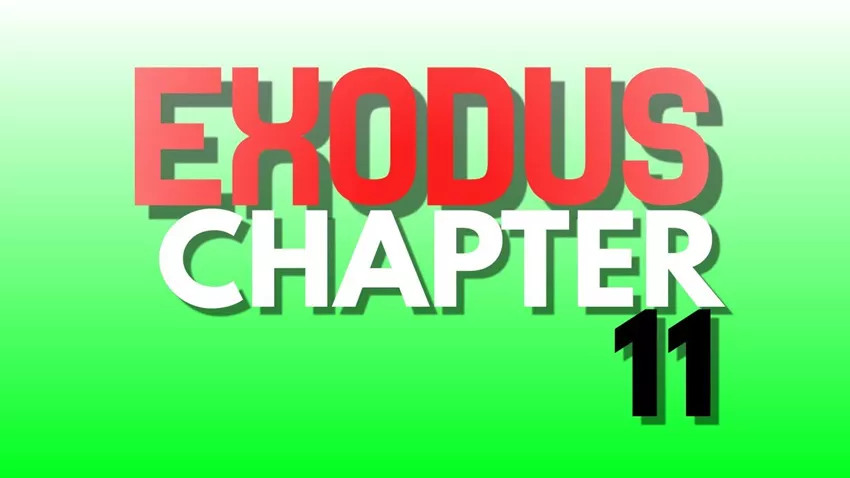Exodus Chapter 11 Summary
Exodus Chapter 11 introduces the final warning before the devastating tenth plague. God instructs Moses to announce the coming judgment: at midnight, the firstborn of every Egyptian family, from the Pharaoh‘s house to the lowest servant, will die. However, the Israelites will be spared. Moses delivers this message to Pharaoh, telling him that this plague will break Pharaoh’s resistance and lead to the Israelites’ release. The chapter also notes that the Israelites will ask their Egyptian neighbors for silver, gold, and clothing, and the Egyptians will grant these requests. Despite this ominous prediction, Pharaoh’s heart remains hardened, setting the stage for the ultimate confrontation between God and Egypt.
Bible Exodus Chapter 11
Welcome to read Exodus Chapter 11. Here is the list of Exodus Chapter 11:
What Does Exodus Chapter 11 Teach Us?
Exodus Chapter 11 marks a pivotal moment in the story of the Israelites’ liberation from Egypt. In this chapter, God reveals the final plague that will bring Pharaoh to his knees, setting the stage for the Exodus. The lessons found in Exodus 11 teach us about God’s justice, the importance of obedience, and the certainty of His promises. Here are key insights from the chapter:
1. The Final Judgment and God’s Justice
Exodus 11 introduces the final plague, the death of the firstborn, a direct judgment on Egypt’s refusal to release God’s people. This plague was a consequence of Pharaoh’s continued hardening of his heart and disobedience. It shows that God’s justice is sure and that He will bring about His judgment on sin. However, this judgment is not arbitrary but follows repeated opportunities for repentance and the demonstration of God’s power through the previous plagues. It teaches us that God’s justice is both righteous and inevitable.
2. The Importance of Obedience and Faith in God’s Instructions
In preparation for the final plague, God gives specific instructions to the Israelites, including the Passover ritual. They are to take a spotless lamb, sacrifice it, and mark their doorposts with its blood. The blood on the doorposts is a sign of their obedience and faith in God’s provision for their deliverance. This act of faith and obedience was the key to their protection from the plague. It teaches us the importance of following God’s commands faithfully, as His instructions always lead to protection and blessing.
3. God’s Sovereignty Over Life and Death
The death of the firstborn in Egypt illustrates God’s absolute sovereignty over life and death. The Egyptians’ gods and Pharaoh himself could not protect their people from God’s judgment. This shows us that God is the ultimate authority over all life and is not subject to the power of any ruler or false god. For believers, this reinforces the understanding that life and death are in God’s hands, and His will prevails over all earthly powers.
4. God’s Mercy and Protection for His People
While Egypt faces judgment, the Israelites are spared by God’s mercy. The blood of the lamb on their doorposts serves as a symbol of God’s mercy and protection. Just as the Israelites were saved from the plague by the lamb’s blood, Christians believe that Jesus, the Lamb of God, provides protection and deliverance from sin and death through His sacrifice on the cross. This teaches us that God always provides a way of salvation and protection for those who trust in Him.
5. The Fulfillment of God’s Promises
Exodus 11 also demonstrates that God’s promises are always fulfilled. God had promised to deliver the Israelites from slavery, and despite Pharaoh’s resistance, God’s plan would not be thwarted. The final plague sets the stage for the fulfillment of God’s covenant with His people. This assures us that God’s promises to us, whether for salvation, provision, or guidance, are sure and trustworthy. He is faithful to fulfill what He has spoken.
Related topics:

